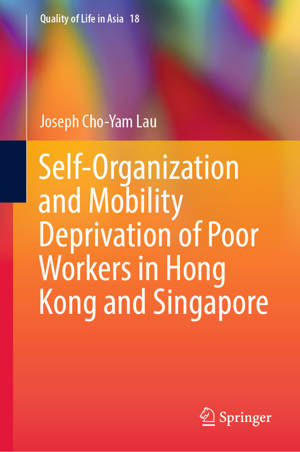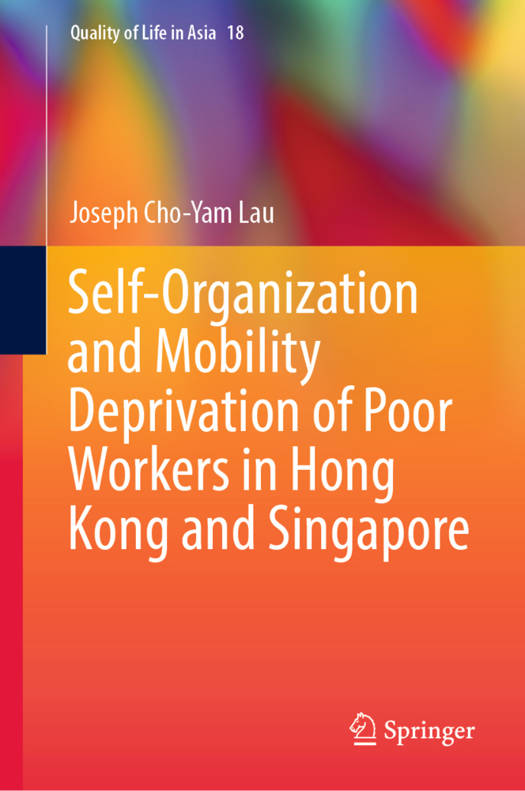
En raison d'une grêve chez bpost, votre commande pourrait être retardée. Vous avez besoin d’un livre rapidement ? Nos magasins vous accueillent à bras ouverts !
- Retrait gratuit dans votre magasin Club
- 7.000.000 titres dans notre catalogue
- Payer en toute sécurité
- Toujours un magasin près de chez vous
En raison de la grêve chez bpost, votre commande pourrait être retardée. Vous avez besoin d’un livre rapidement ? Nos magasins vous accueillent à bras ouverts !
- Retrait gratuit dans votre magasin Club
- 7.000.0000 titres dans notre catalogue
- Payer en toute sécurité
- Toujours un magasin près de chez vous
Self-Organization and Mobility Deprivation of Poor Workers in Hong Kong and Singapore
Joseph Cho-Yam Lau
213,95 €
+ 427 points
Description
This book focuses on the influence of socio-economic and land-use policies on the commuting problems and quality of life of the poor in Singapore and Hong Kong. It considers the influence of self-organisation: how the mobility of an individual is constituted by structures such as transport systems or socio-economic structural factors, as well as influenced by individual decisions. Where most transport studies focus on the influence of factors such as income inequality, the gender gap, and the built environment, this book fills a gap in paying particular attention to the influence of individual decisions on commuting. Given the prevalence of the former in research, government decision-makers are often constrained by these approaches and fail to understand the commuting problems of the poor. This book argues that the self-organisation approach provides some ideas that are outside the common conceptual framework in conventional transport planning, and looks to improve mobility of lower-income commuters. Relevant to social science researchers working in areas such as urban planning and transport, mobility deprivation and poverty, this book breaks new ground in quality of life studies in the Singapore and Hong Kong contexts.
Spécifications
Parties prenantes
- Auteur(s) :
- Editeur:
Contenu
- Nombre de pages :
- 232
- Langue:
- Anglais
- Collection :
- Tome:
- n° 18
Caractéristiques
- EAN:
- 9789819972647
- Date de parution :
- 17-10-23
- Format:
- Livre relié
- Format numérique:
- Genaaid
- Dimensions :
- 156 mm x 234 mm
- Poids :
- 530 g

Les avis
Nous publions uniquement les avis qui respectent les conditions requises. Consultez nos conditions pour les avis.






